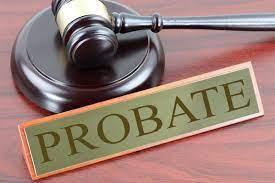What are the Required Documents for Ancillary Probate in Florida?

I. Introduction
Ancillary Probate in Florida is a legal process required when a decedent owns property in another state. Jurisdiction constraints necessitate this process since home state courts only control in-state properties.
It involves a separate probate for out-of-state properties in the state where the property is located, aiming to distribute the property per the decedent's will or local law.
Understanding ancillary probate and the necessary documents for Florida is essential for efficient Estate and Administration of Trusts in Florida and compliance with the law.
II. When is Ancillary Probate Needed?
Ancillary probate is required when a decedent owns property, particularly real estate, outside their home state. It is a secondary probate process following the primary probate in the decedent's home state, as the home state's probate court lacks jurisdiction over the out-of-state property.
For instance, a California resident owning Florida property at the time of death would undergo primary probate in California and ancillary probate in Florida. Ancillary probate handles legal matters related to out-of-state properties.
III. List of Required Documents
Document 1: Authenticated copy of the decedent's will
Purpose: Provides legal proof of the decedent's wishes regarding their property.
Where to obtain: From the decedent's domicile state's court that oversees probate matters.
Considerations: Ensure that the copy of the will is authenticated by the court to be accepted in Florida's ancillary probate proceedings.
Document 2: Petition for Ancillary Administration
Purpose: To initiate ancillary probate proceedings in Florida.
Where to obtain: Florida court's official website or local court where the property is located.
Considerations: Make sure the petition meets statutory requirements and is accompanied by the appropriate filing fees.
Document 3: Death Certificate
Purpose: To confirm the date and fact of the decedent's death.
Where to obtain: The vital records office in the state where the death occurred.
Considerations: An authenticated, certified copy of the death certificate may be required for submission to the Florida court.
Document 4: Proof of Personal Representative's Appointment
Purpose: To confirm the individual authorized to act on behalf of the decedent's estate and handle the decedent's assets and affairs in Florida.
Where to obtain: Issued by the court overseeing the primary probate in the decedent's domicile state.
Considerations: Ensure you have an official, certified copy of the court order. The person named as the personal representative should be eligible under Florida law; if not or if there are complex issues, consult legal counsel.
Document 5: List of Heirs
Purpose: To identify all beneficiaries under the will or those who would have been beneficiaries if there were no will.
Where to obtain: Prepared by the Personal Representative or their Florida Probate Attorney based on information on the decedent's family and estate plan.
Considerations: Ensure that all potential heirs and beneficiaries are included, even if they are not named in the will.
Document 6: Oath of Personal Representative and Designation and Acceptance of Resident Agent
Purpose: For the Personal Representative to officially swear to faithfully administer the estate, and to appoint and accept (if applicable) a Florida Resident Agent.
Where to obtain: Florida court's official website or local court where the property is located.
Considerations: If the Personal Representative is not a Florida resident, appointing a Florida Resident Agent is necessary. Make sure the oath and appointment documents are properly signed and executed.
Document 7: Notice to Creditors
Purpose: To notify creditors of the decedent's death and the 90-day period for claims against the estate.
Where to obtain: Prepared by the Personal Representative or their attorney.
Considerations: Publish the notice in a local newspaper and serve it to all known creditors. Keep track of the creditor claim period deadlines.
Document 8: Inventory of the Decedent's Florida Property
Purpose: To provide a detailed list of all the decedent's real and personal property located in Florida.
Where to obtain: Prepared by the Personal Representative or their attorney based on the information on the decedent's assets.
Considerations: Ensure accuracy, completeness, and proper valuation of all listed items. Seek professional appraisal if needed.
IV. Additional Tips and Considerations
Consult a Florida Probate Attorney and Administration lawyer for extra documents, observe legal requirements and deadlines, and maintain clear communication with involved parties. Work with a knowledgeable estate attorney to avoid mistakes or challenges.
V. Conclusion
Accurate completion of required documents for Florida ancillary probate is vital for efficient estate and Administration of Trusts in Florida. Seek legal advice from a Florida probate attorney for guidance in the ancillary probate process if in doubt.
Advertise on APSense
This advertising space is available.
Post Your Ad Here
Post Your Ad Here
Comments